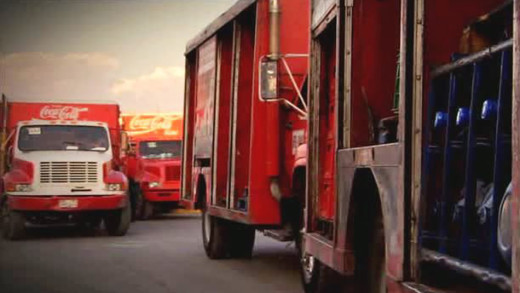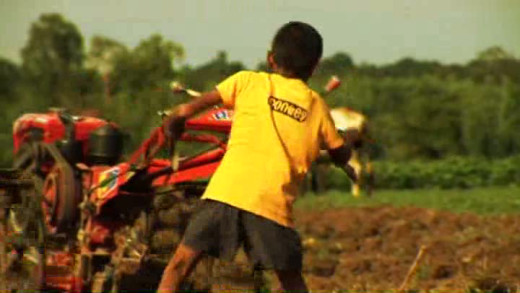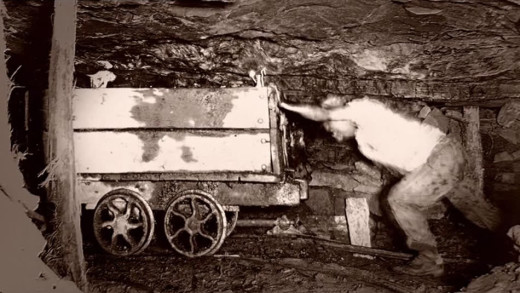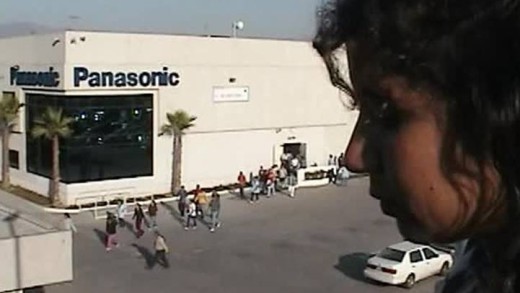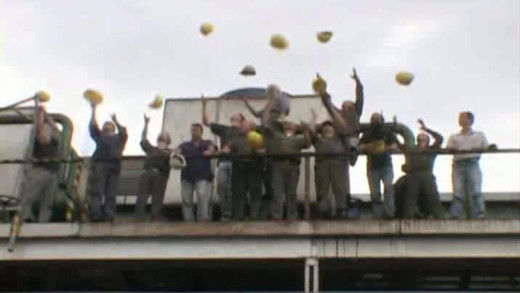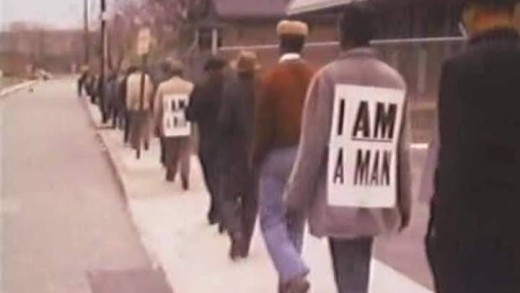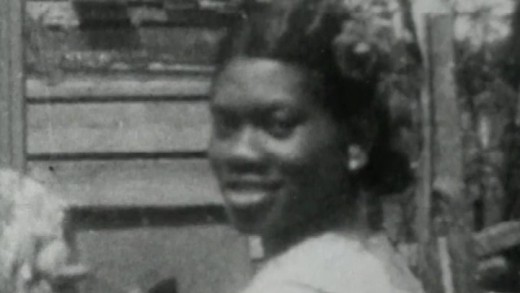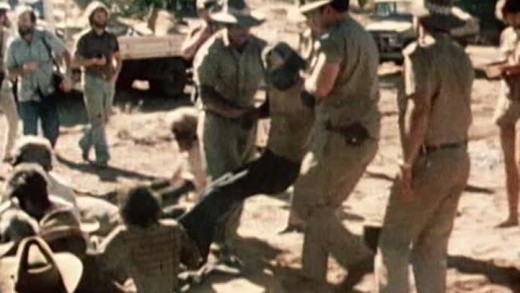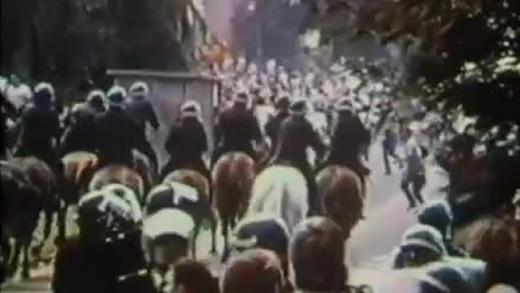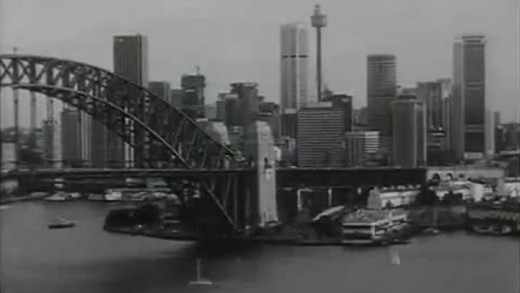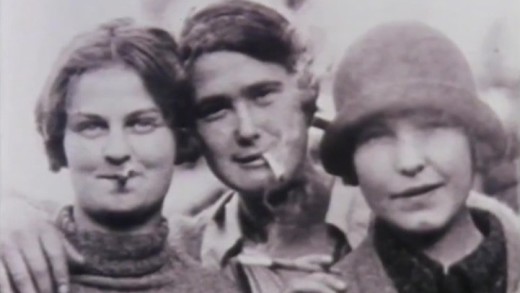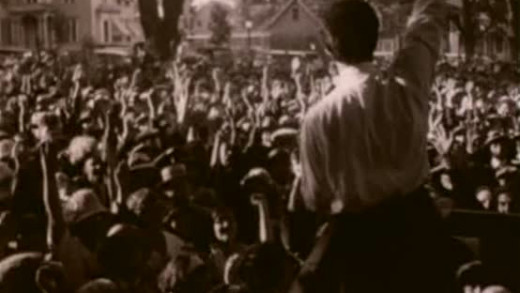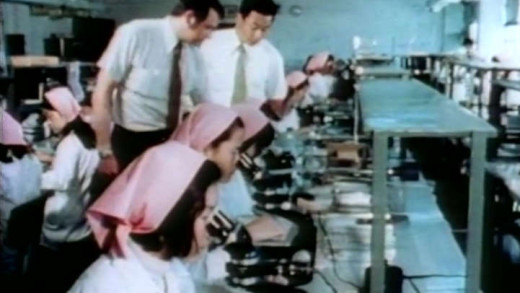Coca Cola is one of the most visible brands in the world, but there's one part of the operations the corporation doesn't want you to see. Colombia is the trade-union-murder-capital of the world. Since 2002, more than 470 workers' leaders have been brutally killed, usually by paramilitaries hired by private companies intent on crushing the unions. Amongst the top unscrupulous corporate brands is Coca Cola...
Filmed in Thailand and the Philippines in July 2007, Squeezed tells the story of how free trade agreements and globalisation are changing the lives of millions of people living in the Asia-Pacific region with APEC. Featuring interviews with farmers, workers and slum-dwellers, the film travels across the landscapes of Asia, from the lush rice paddies of Thailand to squatter settlements perched on a rubbish dump in urban Manila. Documenting these contrasts and contradictions, Squeezed accounts the impact of globalisation...
In 1929, in the face of collapsing demand for coal and a deepening economic crisis, mine owners in the Hunter Valley of New South Wales, Australia; announced, with the support of government, that they would cut miners' wages and strip them of their workers rights. When the workers refused to agree to these terms the mine owners locked the gates. 10,000 miners, pit boys and their families now found themselves without a job. What began as an dispute about industrial labour ended up overpowering a government, crippling an industry and besieging a community. This event challenged the rights of every Australian worker, and redefined the political and industrial landscape of a country that witnessed an event forever remembered as 'The Great Australian Lockout.'
In Mexico, 'maquiladoras' is a word used to describe the sort of factories that have become commonplace with globalisation—mass assembly and manufacturing plants primarily staffed by women for low wage and long hours in unsafe and toxic conditions. Tijuana has attracted so many such factories that it has gained the nickname Maquilapolis. Delving into the landscape of this, this film asks the question: What is the human price of globalisation? Maquilapolis brings American and Mexican-American filmmakers together with Tijuana factory workers and community organisers to answer that question and tell the story of globalisation through the eyes and voices of the workers themselves. The result is a film to inform and inspire, as each day the workers confront labor violations, environmental devastation and urban chaos...
The Take
The Take documents the story of workers in Buenos Aires, Argentina who reclaim control of a closed auto-plant where they once worked and turn it into a worker cooperative. The factory closed as a result of the economic policies of the government under the watchful eye of the IMF. While in bankruptcy protection, the company appeared to be selling off property and inventory to pay creditors -- a move which further reduced the chances of the facility returning to production. Though as the movement gains strength, having started with a garment factory several years earlier, the factory workers wade through courts and the legislative system, finally establishing their own control and winning the right to operate it themselves, as a cooperative...
No Logo
In the age of the brand, logos are everywhere. But why do some of the world's best-known brands find themselves at the end of spray paint cans and the targets of anti-corporate campaigns? No Logo, based on the best-selling book by Canadian journalist and activist Naomi Klein, reveals the reasons behind the backlash against the increasing economic and cultural reach of multinational companies. Analysing how brands like Nike, The Gap, and Tommy Hilfiger became revered symbols worldwide, Klein argues that globalisation is a process whereby corporations discovered that profits lay not in making products (outsourced to low-wage workers in developing countries), but in creating branded identities people adopt in their lifestyles. Using hundreds of media examples, No Logo shows how the commercial takeover of public space, the restriction of 'choice', and replacement of real jobs with temporary work -- the dynamics of corporate globalisation -- impact everyone, everywhere...
Spring of 1968 in Memphis Tennessee marked the peak of the Civil Rights movement in the United States. At the River I Stand sets out to reconstruct the eventful months leading up to this period by looking at what started as a strike by sanitation workers which quickly soared into a national conflagration. The film disentangles the complex historical forces that came together for the struggle as well the inevitability of tragedy at the death of many, including Martin Luther King. At the River I Stand brings into sharp relief issues that have only become more urgent in the intervening years: the connection between economic and civil rights; debates over strategies for change, and the questions of effectiveness of pacifist tactics for social change; the demand for full inclusion of African Americans in life; as well as the pressing fight for dignity for all working people...
Through a series of portraits that reach across different class, ethnic and generational experiences, The Double Burden speaks to the diversity of pains and pleasures of working motherhood. What is it like to grow up in a family where mothers have always worked outside the home? Through the lives of three families--one Mexican-American, one Polish-American, and one African-American--each with three generations of women who worked outside the home while also raising families, this film aims to instil tremendous respect for the accomplishments of women and for women of different races, social classes and life-styles through the generations, against social odds, pressures and expectations.
On 1 May 1946, under occupation and wage slavery by the white man, 800 Aboriginal workers walked off sheep stations in the north-west of Western Australia, marking the beginning of a carefully organised strike that was to last for at least three years, and never officially ended. The strike was a demand for basic freedoms and for better wages considering the imposed conditions. A fight that sadly continues to this day, speaking to the truth of a country still occupied and brutally colonised, land that was never ceded.
Orgreave in the North of England was the focal point for a mass protest by miners in June 1984. At this time, miners were angry over proposed pit closures and reacted by striking and pressuring other pits to close. The culmination of these protests was a mass gathering of miners from all over the country at Orgreave. On the morning of 18th June miners were escorted into Orgreave. At this point, police tactics already resembled a military campaign. After a push by the miners, the police acted with force, charging the pickets on horses. The protest soon turned violent with the police deploying dogs, batons and guns in an attempt to suppress the protest. The Battle for Orgreave interviews defendants directly about their experiences of Orgreave, and how those experiences changed their life...
Rocking The Foundations recounts the history of the Green Bans introduced by the New South Wales Builders Labourers Federation in the 1970s which were a series of trade union strikes imposed on developers who wanted to demolish heritage buildings and sites of environmental significance in NSW. The workers saved bushland, trees, and numerous historical buildings which, to this day, remain a powerful symbol of how successful environmental campaigns and effective and honest trade unions can be run...
Made over five years, with contributions from hundreds of women and over 200 Australian films, For Love or Money is a pictorial account of women's history in Australia over the past decades. The film chronicles the cycles of women's gains and losses as they are moved in and out of the workforce according to demands of the age, revealing how women's unpaid and voluntary work over the years has kept and continues to keep an entire system running smoothly, both in peacetime and in war. In this culture, women do the work that is never paid or still not even recognised as real work. This film shows how this system determines the kinds of jobs women do in the paid workforce--the low-paid, low-status jobs--and how women have fought and organised for equality and wage justice for over a century. For Love or Money remains relevant today as women continue the unfinished campaigns for equal pay, maternity leave and childcare, and still carry the major responsibility for caring and nurturing in the culture of individualism.
Along the way to winning an eight-hour workday and fair wages in the early 20th century, the Wobblies were one of the few unions to be racially and sexually integrated and often met with imprisonment, violence, and the privations of prolonged strikes. The Wobblies airs a provocative look at the forgotten American history of this most radical of unions, screening the unforgettable and still-fiery voices of Wobbly members -- lumberjacks, migratory workers, and silk weavers -- in their 70s, 80s, and 90s.
Controlling Interest is one of the first documentary films to provide a critical analysis on the growth of multinational corporations, and their impacts on people and the environment. Upon its release, Controlling Interest quickly became a standard audio-visual text for those concerned about the growing impact of multinational corporations, examining how the ever-increasing concentration of money and power affects employment in the United States, shapes patterns of development across the world, and influences foreign policy. This is the film that helped kick-off the anti-globalisation movement. Remarkably candid interviews with business executives provide a rare glimpse of the reasoning behind corporate global strategy, and the never-ending search for resources, ever-cheaper labour, and the commodification of life. The film documents the impact of corporate decisions on people around the world, including how "freedom" has come increasingly to mean the freedom of global corporations to operate without restriction. Some of the case studies include Massachusetts' declining machine tool industry, Brazil's "economic miracle," and Chile before and after the 1973 coup.
